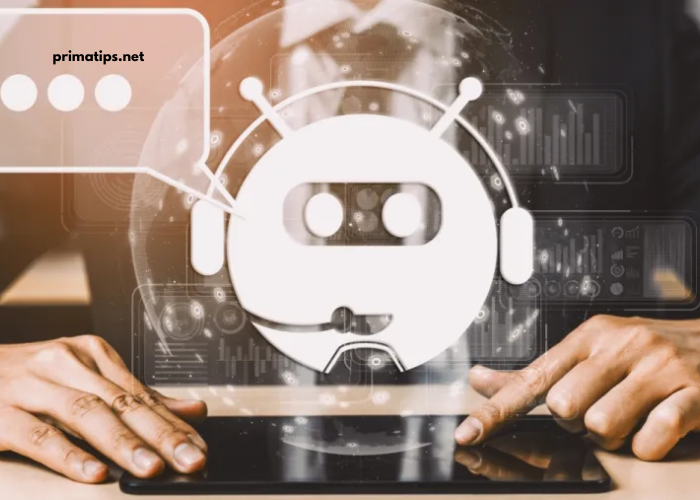Tech Innovations to Watch in 2025: Key Insights
As we move closer to 2025, the world of technology is on the brink of breakthroughs that promise to revolutionize industries, enhance our lives, and shape the future. From advancements in AI to the growing power of quantum computing, this article delves into the tech innovations that are set to make a significant impact in 2025. With a focus on key insights, we’ll explore how these innovations will redefine the way we interact with the digital world, our workplaces, and even our daily lives.
1. Artificial Intelligence (AI) and Machine Learning (ML)
The Rise of Autonomous Systems
Artificial intelligence (AI) has already made a significant impact on various sectors, and 2025 will see the technology evolve to new heights. One of the most exciting trends is the increased use of AI for autonomous systems, particularly in industries such as transportation, healthcare, and finance. Autonomous vehicles, drones, and robots will become more reliable and efficient as AI continues to improve.
In 2025, we can expect AI to enable fully autonomous delivery systems. Companies like Amazon and Google are already investing heavily in drone technology for delivery purposes, and by 2025, we might see more widespread implementation, reducing the need for human intervention.
AI in Personalization and Customer Experience
In 2025, AI is set to transform customer experiences even further. Businesses will leverage AI to provide highly personalized experiences, from dynamic content recommendations to personalized shopping journeys. AI-driven chatbots will evolve into advanced virtual assistants capable of understanding context, emotional cues, and user preferences.
These innovations will help businesses understand their customers’ behavior in greater detail, leading to tailored experiences that drive customer loyalty and engagement.
2. Quantum Computing
Unlocking Unprecedented Computing Power
Quantum computing is poised to disrupt industries by providing computing power far beyond that of traditional computers. While quantum computers are still in their infancy, experts predict that by 2025, we will witness significant advancements in quantum hardware and software, making quantum computing more accessible to businesses and research institutions.
The potential of quantum computing lies in its ability to solve complex problems that classical computers struggle with, such as drug discovery, climate modeling, and cryptography. By utilizing the principles of quantum mechanics, quantum computers can process vast amounts of data simultaneously, enabling breakthroughs in fields like AI, material science, and cybersecurity.
Quantum Encryption for Enhanced Cybersecurity
As quantum computers become more powerful, they will also play a critical role in cybersecurity. One of the major concerns with the development of quantum computing is its potential to break existing encryption methods. However, the rise of quantum encryption technologies, such as quantum key distribution (QKD), will help secure data against future threats.
By 2025, we can expect to see the implementation of quantum encryption in government and enterprise applications, ensuring that sensitive information remains secure even in the face of quantum-enabled hacking attempts.
3. 5G and Beyond: The Future of Connectivity
A World of Faster, More Reliable Networks
The deployment of 5G networks has already begun in many parts of the world, but by 2025, 5G will become the standard for high-speed, low-latency connectivity. With speeds up to 100 times faster than 4G, 5G will revolutionize everything from mobile gaming to smart cities, making it possible to connect billions of devices seamlessly.
The increase in bandwidth and speed will enable innovations in augmented reality (AR) and virtual reality (VR), allowing for more immersive experiences in gaming, education, and entertainment. Real-time data processing will be key to driving advancements in industries such as autonomous vehicles, telemedicine, and IoT (Internet of Things).
The Path to 6G and the Internet of Everything
Looking ahead, 6G networks are already in the research and development phase. By 2025, some countries may begin testing 6G technology, which promises to offer even faster speeds, lower latency, and more reliable connections than 5G. The primary goal of 6G will be to support the “Internet of Everything” (IoE), a concept that extends beyond just connecting devices to creating smart environments that respond to human interaction.
With 6G, we will see hyper-connected cities where everything from traffic lights to healthcare systems is interconnected, providing a more efficient and responsive infrastructure. The emergence of 6G will accelerate the adoption of smart cities and revolutionize urban planning.
4. Augmented Reality (AR) and Virtual Reality (VR)
Enhanced Immersion in AR and VR Experiences
Augmented Reality (AR) and Virtual Reality (VR) are already gaining traction in industries like gaming, entertainment, and education. However, the real potential of these technologies will unfold in 2025, as advancements in hardware, software, and connectivity open up new possibilities.
In 2025, AR will transition from a novelty to a mainstream tool used in everything from shopping to healthcare. For instance, AR will allow consumers to try products virtually before purchasing, enhancing the online shopping experience. In healthcare, AR will enable surgeons to visualize critical information in real-time during operations, improving outcomes.
On the other hand, VR will offer deeper immersion, especially in fields like education, training, and remote work. With more affordable and accessible VR headsets, users will be able to engage in fully immersive environments, whether it’s for remote collaboration, virtual tourism, or advanced simulation training.
The Metaverse: The Next Evolution of the Internet
By 2025, the concept of the “Metaverse” is expected to mature, offering a fully immersive digital world where users can interact, work, play, and socialize in virtual environments. The metaverse will be powered by a combination of AR, VR, and AI technologies, creating interconnected virtual spaces where individuals and organizations can conduct business, attend events, and participate in experiences that blend the physical and digital worlds.
Companies like Meta, Microsoft, and Apple are investing heavily in the Metaverse, and by 2025, we will likely see more consumer-friendly products and services emerge, allowing users to engage with the metaverse on a daily basis.
5. Biotechnology and Health Tech
CRISPR and Gene Editing for Disease Prevention
The field of biotechnology is expected to see major breakthroughs by 2025, particularly in the area of gene editing. One of the most promising technologies in this space is CRISPR, a gene-editing tool that has the potential to cure genetic diseases and even prevent them before birth.
In 2025, CRISPR will likely play a pivotal role in personalized medicine, allowing doctors to target and treat diseases at the genetic level. Innovations in gene therapies could eliminate hereditary conditions such as sickle cell anemia and cystic fibrosis, bringing us closer to eradicating genetic diseases altogether.
Wearable Health Tech: Real-time Monitoring and Personalized Care
Wearable technology is rapidly evolving, and by 2025, we can expect more advanced health monitoring devices that can track everything from heart rate and blood pressure to blood sugar and oxygen levels. These devices will enable real-time health monitoring and personalized care plans, empowering individuals to take charge of their health.
AI-powered wearable devices will also be capable of detecting early signs of health issues, enabling proactive interventions and improving outcomes. The combination of wearable health tech and telemedicine will revolutionize healthcare delivery, especially in remote areas.
6. Renewable Energy Technologies
Breakthroughs in Solar and Wind Energy
As the world focuses on combating climate change, renewable energy technologies are set to become more efficient and affordable. By 2025, solar and wind energy will continue to dominate the energy landscape, with innovations in energy storage and grid management paving the way for widespread adoption.
New advancements in solar panel efficiency and wind turbine design will make renewable energy sources more accessible and cost-effective for both consumers and businesses. Additionally, the growth of smart grids will enable more efficient energy distribution, helping to integrate renewable energy into the existing infrastructure.
Green Hydrogen: The Future of Clean Energy
In 2025, green hydrogen is expected to play a crucial role in the global transition to sustainable energy. Produced using renewable energy sources, green hydrogen can be used as a clean alternative to fossil fuels in industries like transportation, heavy industry, and power generation.
The widespread adoption of green hydrogen will reduce reliance on traditional energy sources and significantly lower carbon emissions. Innovations in hydrogen production and storage technologies will drive the transition to a low-carbon economy, making green hydrogen a cornerstone of the clean energy revolution.
Conclusion
The year 2025 is poised to witness groundbreaking innovations in various fields, from AI and quantum computing to healthcare and renewable energy. These technological advancements will reshape industries, create new opportunities, and solve some of the world’s most pressing challenges. By staying informed about these emerging trends and innovations, individuals and businesses can prepare for the future and harness the power of these game-changing technologies to stay ahead in an increasingly digital and interconnected world.













